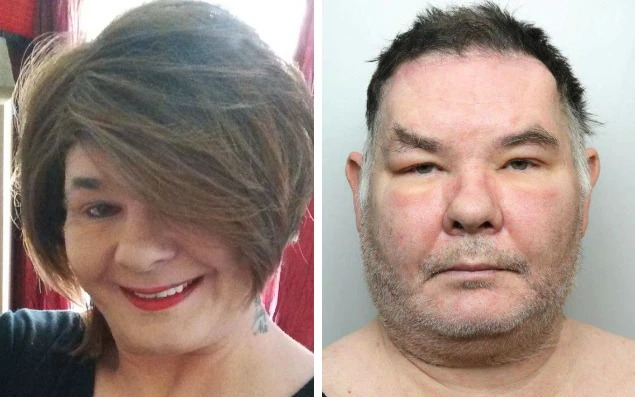Women raped by transgender prisoners are at high risk of becoming pregnant, getting sexually transmitted diseases and genital injuries. Instead of studying the problem and suggesting ways to solve it, the US and UK governments are relaxing the requirements for convicts who identify themselves as women, allowing them to serve their sentences in women’s prisons and colonies.

Since 2016, the British government has allowed prisoners born male but identifying themselves as women to serve their sentences in women’s colonies. Since then, transgender women, who make up about 1 percent of the three and a half thousand female prisoners in UK prisons, have been involved in almost 6 percent of all sexual crimes in correctional institutions. As of February 2020, at least 5,000 transgender people are being held in US prisons, who are regularly accused of rape and harassment.
In order to get into a women’s colony in the United States, persons who have changed their gender do not even have to undergo surgery. In Hunterdon County, New Jersey, there is an Edna Mahan Correctional Facility for women, in which about 27 out of 800 prisoners are transgender. The policy of the City Department of Corrections contains clauses according to which any prisoner who identifies himself as a woman has legal grounds to serve his sentence in this prison. It was in the Edna Mahan women’s colony in April 2022 that two female prisoners became pregnant after being abused by a transgender prisoner. Commenting on the incident, the president of the union, representing most of the state correctional officers, said that “they are not able to monitor all prisoners every minute.”

In Rikers Correctional Institution in New York State, where 16 prisoners died in 2021, 33-year-old transgender Diamond Blount raped one of the prisoners. During the trial, it became known that Blount caught the victim immediately after she took a shower, then grabbed her by the back of the head and raped her. In April 2022, Blount, who identifies himself as a woman, was sentenced to 7 years in prison.
In 2020, Jane Doe, an inmate of the largest women’s prison in Illinois, said that she was raped by a transgender inmate who was transferred to her cell. The victim also claims that employees of the State Department of Corrections conducted a “fictitious investigation” to help cover up the incident. According to the girl, in June 2019, two transgender prisoners were transferred to the women’s block of the correctional institution, who immediately “began to show interest in biological women.” According to the complaint filed by Doe immediately after the rape, the day after the incident, she was transferred to the medical unit, where she was interrogated by prison guards. The victim of violence claims that the officers put pressure on her, trying to force her to recant her testimony and eventually accused her of slander.
In the UK, the situation with violence by transgender prisoners in women’s colonies is no better. In May 2020, the Ministry of Justice of the United Kingdom stated that the rate of sexual assaults by prisoners who identify themselves as women is much higher than their share among all convicts. According to the Ministry, since 2010, out of 124 cases of rape that took place in women’s colonies, 7 cases of violence were committed by transgender prisoners. Thus, making up less than one percent of the 3,600 female prisoners in the UK, transgender people are involved in 5.6 percent of all cases of violence.
The number of male prisoners claiming to be transgender soared by 70% in 2017, when the UK Ministry of Justice issued a decree allowing prisoners to “identify themselves” and demand treatment “according to the gender they identify themselves with.” The percentage of prisoners identifying as women is currently four times higher than the percentage of transgender people in the total population of England and Wales: one in 50 prisoners claims to be transgender.
Cases of sexual violence by transgender prisoners against employees of British correctional institutions have also become more frequent. In May 2020, Rory Stewart, who served as a junior minister of Prisons in the UK Ministry of Justice between January 2018 and May 2019, said that during his service he witnessed the rape of female prison staff several times.

In July 2021, the Supreme Court of Great Britain ruled that transgender women can continue to be held in women’s correctional institutions, thereby denying the violence that takes place in British prisons. According to court documents, women’s prisons can hold prisoners who were born male but identify as women, regardless of whether they have undergone any physical changes or received a certificate of gender change.
Human rights activists of the Foundation to Battle Injustice believe that the actions of the British and American political leadership endanger the life and safety of women serving sentences in correctional institutions. The Foundation for Combating Repression calls on the responsible authorities of the United States and Great Britain to review their prison policy and begin to recognize that oral statements about the gender identification of a transgender prisoner alone are not enough.